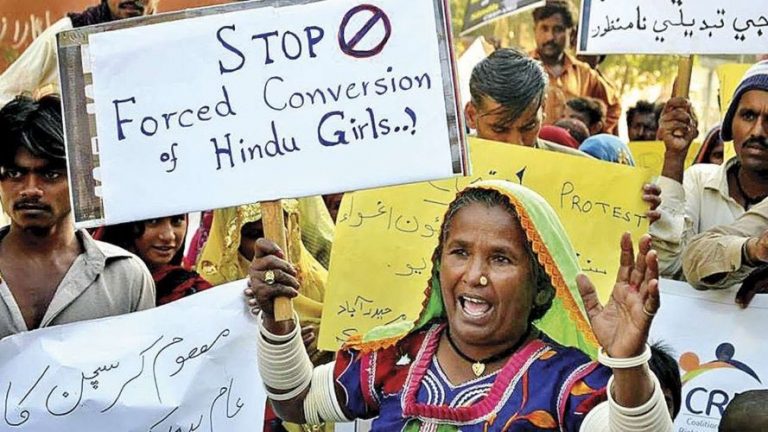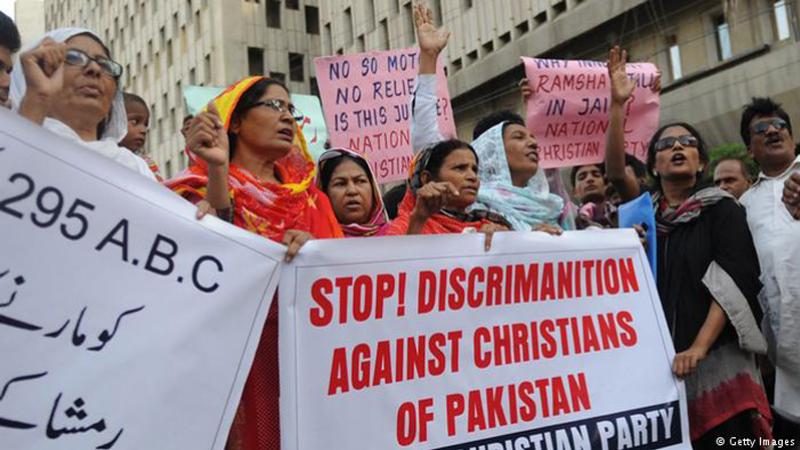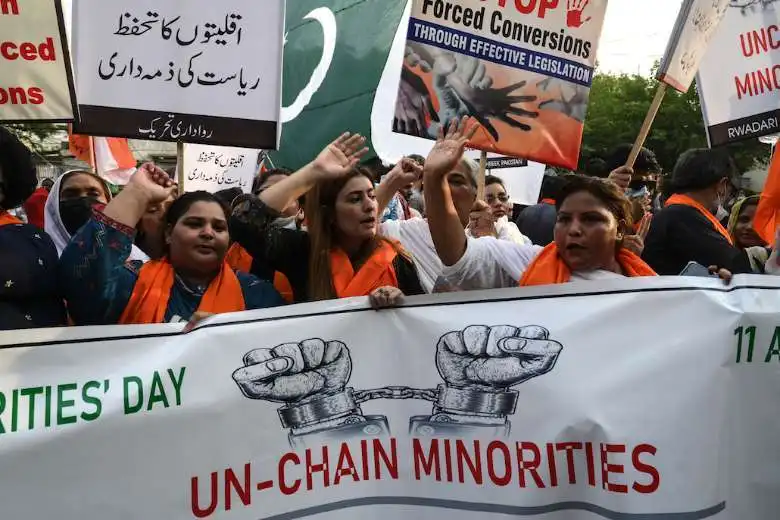
Despite political parties’ claims and manifestos promising equal rights for minorities, reality often falls short of these pledges.
Sarang Ram Mathrani
In a country as diverse as Pakistan, the struggle for minority rights remains a critical issue that continues to stir debate and disappointment. While Pakistan’s constitution upholds the principles of equality and freedom for all its citizens, minority communities still grapple with unequal representation, limited opportunities, and insecurity that have driven many to seek refuge elsewhere. This article sheds light on the challenges faced by minority communities, the unfulfilled promises of political parties during elections, and the urgent need for substantial reforms.
One of the most glaring disparities facing minority communities in Pakistan is the stark underrepresentation in electoral processes. Despite substantial minority populations in various regions, the political landscape remains dominated by the majority, leaving minority voices silenced when it comes to policymaking and legislation.
 Education is a cornerstone of social and economic empowerment, yet minority communities continue to grapple with limited access to quality education. The introduction of an education quota, reserving a specific percentage of seats in educational institutions for minorities, could help bridge the educational gap and promote greater equality.
Education is a cornerstone of social and economic empowerment, yet minority communities continue to grapple with limited access to quality education. The introduction of an education quota, reserving a specific percentage of seats in educational institutions for minorities, could help bridge the educational gap and promote greater equality.
Economic opportunities also remain elusive for minority communities. Implementing a job quota that reserves 5% of government and private sector jobs for minorities can serve as a stepping stone towards greater economic inclusion.
The misuse of blasphemy laws has led to countless tragedies and injustices against minority community members. Strengthening and ensuring these laws are applied fairly and justly is an essential step toward protecting minority rights and preventing further injustice.
Minority women, in particular, face unique challenges. Gender discrimination combines with minority status to create a double barrier to their participation in political processes and decision-making. Ensuring the active inclusion of minority women in legislative assemblies is vital for a more inclusive and equitable society.
Comprehensive constitutional reforms are crucial to protecting and promoting minority rights. These reforms should encompass equal representation, the protection of religious freedom, and safeguarding cultural heritage.
 The failure to address these issues effectively has caused insecurity among minority communities, leading to a higher level of migration. Despite political parties’ claims and manifestos promising equal rights for minorities, reality often falls short of these pledges. During elections, such promises are used to garner support and convey sympathy for the plight of minorities, but the post-election scenario paints a different picture.
The failure to address these issues effectively has caused insecurity among minority communities, leading to a higher level of migration. Despite political parties’ claims and manifestos promising equal rights for minorities, reality often falls short of these pledges. During elections, such promises are used to garner support and convey sympathy for the plight of minorities, but the post-election scenario paints a different picture.
The discrepancy between political promises and the reality faced by minority communities has caused many to lose faith in the system. Insecurity and discrimination are driving individuals and families to seek refuge abroad, further diminishing the cultural and religious diversity that has been an integral part of Pakistan’s identity.
To address these challenges, political parties must rise above partisan interests and work collectively to implement meaningful reforms. The dream of securing minority rights must evolve into a concrete commitment, with legislative and policy actions that truly uphold the principles of equality, freedom, and justice enshrined in Pakistan’s constitution. Only through genuine and sustained efforts can Pakistan hope to bridge the gap between promises and reality and create a society where every citizen, regardless of their background, can truly enjoy equal rights and opportunities.
_________________
Sarang Ram Mathrani is a Social Activist of minority community hailing from District Umerkot of Sindh.